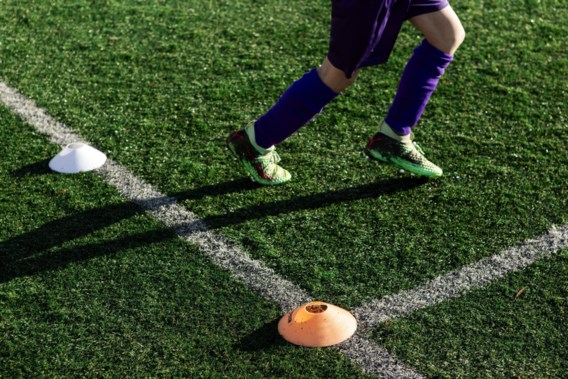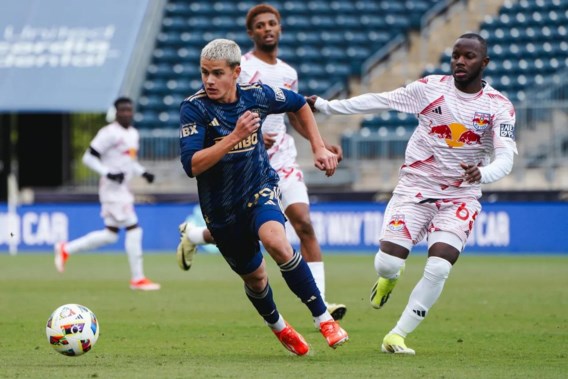“My son’s life has been destroyed.” “I can’t find the words to describe this situation.” Reactions to the wars in Gaza and Ukraine? “Not at all,” wrote Nand De Klerck, spokesperson for Voetbal Vlaanderen, in a reader’s letter to De Standaard. “These are reactions to a questionable decision by a referee in a U15 football match.”
De Klerck calls on people not to forget that it is just a game of football. This call is urgently needed, he believes. “This season there has been an extremely emotional response. Week in, week out, reports come in of arguments between parents of youth teams and conflicts between club boards and dissatisfied parents or players.”
Since last year, every club has been required to have a confidential counselor or Integrity Contact Point (API), otherwise it will lose its subsidies. The measure came after staggering figures: between the start of the season and March last year, Voetbal Vlaanderen received 750 reports of inappropriate behavior.
Six in ten reports came from youth football. The number of reports of psychologically inappropriate behavior (even including racist swearing) was number one, followed by physical and sexual misconduct.
Competition over team
“The reasoning of parents is often: ‘When we were young, we had to be able to cope with that’,” says Bruno Bossaert (54), API at the RitterKlub Jette. “Shouting or swearing once is not always problematic. But repeatedly targeting, intimidating or knocking someone down is. The problem often lies in the balance of power: a good player against an average one, a coach against a player, a parent against a child.”
As an API, Bossaert mainly takes a mediating position. “I try to get the parties talking, although that is often a delicate process,” says Bossaert. “A young footballer recently knocked on my door because he was being bullied by a fellow player. He did not want the team to know that he had told me his story, for fear that the harassment would get worse. How do you deal with that?”, Bossaert wonders out loud. “I am not a psychologist, I work as an IT consultant during the week.”
After the match, Bossaert went to the team’s locker room to talk to the teenagers. “We are here to learn, to have fun and to play football. Together, as a club. I emphasized that, and I think it helped to increase team spirit.”
That is not always the case, says Bossaert. “Other times I was laughed at in the locker room, to my face, sometimes even by the coach.” The shoe is often pinching for those coaches, says Bossaert. They are often young, between 17 and 21 years old, and see their team’s victory as a personal victory. Then it’s competition over team.
“Lesser players are repeatedly sent to the bench by such coaches, or the coaches shout and swear at the football players. Due to such a situation, five young football players recently quit,” says Bossaert. “Correcting the coaches is often difficult. They don’t work with us for long and then say: ‘I’m doing my best, if you don’t agree with my method, that’s no problem. Then I will go to another club that pays more per match.’”
Did you do that at home too?
It is a danger behind all the respect awareness in football, fears De Klerck of Voetbal Vlaanderen. “By fully focusing on respect – no racism, no homophobia, no aggression – two camps seem to be forming: those who do their best to create a safer place on the pitch, and those who think it’s bullshit and are against it. to take off. You’re not allowed to do anything these days, they say.”
“We have already removed the rankings for players under 12. We have launched an action plan called ‘Doedegijdatthuisook?’ And with the fair play rankings we try to bring more integrity and respect to the turf,” says De Klerck.
There are approximately 200,000 youth matches per year, of which “99 percent” run smoothly. But that does mean that 2,000 matches will come with incidents. “That’s right, that’s a lot,” says De Klerck. “I don’t want to put it into perspective, but I do want to emphasize that the figures must be placed in context: football is by far the biggest sport. A broad section of the population comes together there. Social problems are always reflected around and on the turf,” says De Klerck.
When it rains in the pros
But professional football is also a crucial factor in the behavior of youth players, De Klerck argues. It is Thursday afternoon when we telephone, the Belgian Cup is in progress. “Live on television, in front of thousands of viewers, every refereeing decision is challenged. You see someone shouting ‘fuck you’ at the referee. And if it rains among the pros, it drips among the youth.”
“They need to be stricter at the top level, because their behavior trickles down to the parents and children. It is unbelievable how many hundreds of thousands of young football players look up to their heroes. They often follow every move of their favorite football player. And if he keeps misbehaving, that must be normal, right?”
Back to De Klerck’s call, so: calm down, people, it’s just a ball game. Supporters on the sidelines in, say, Wortegem-Petegem may also know this. And yet. “Maybe I’m biased,” says De Klerck, “but football is the biggest, most beautiful, most emotional sport.”
Hundreds of thousands of supporters follow the ball on the edge of their seats until it ends up in the net between the two posts. “Nerve-wracking. And if your 12-year-old son is tackled correctly but brutally, you can go crazy. It’s just a game? That doesn’t immediately come to mind.”

